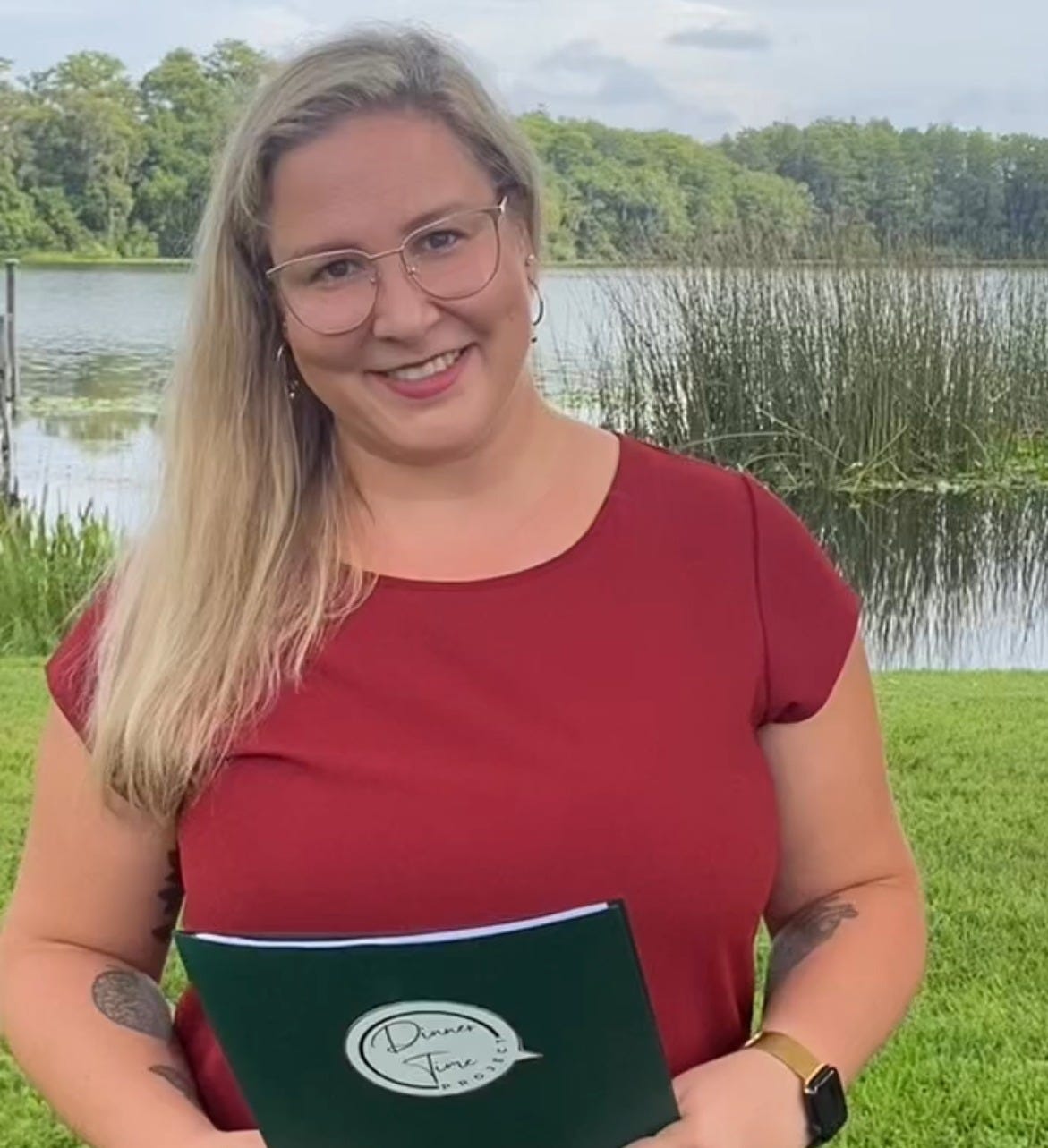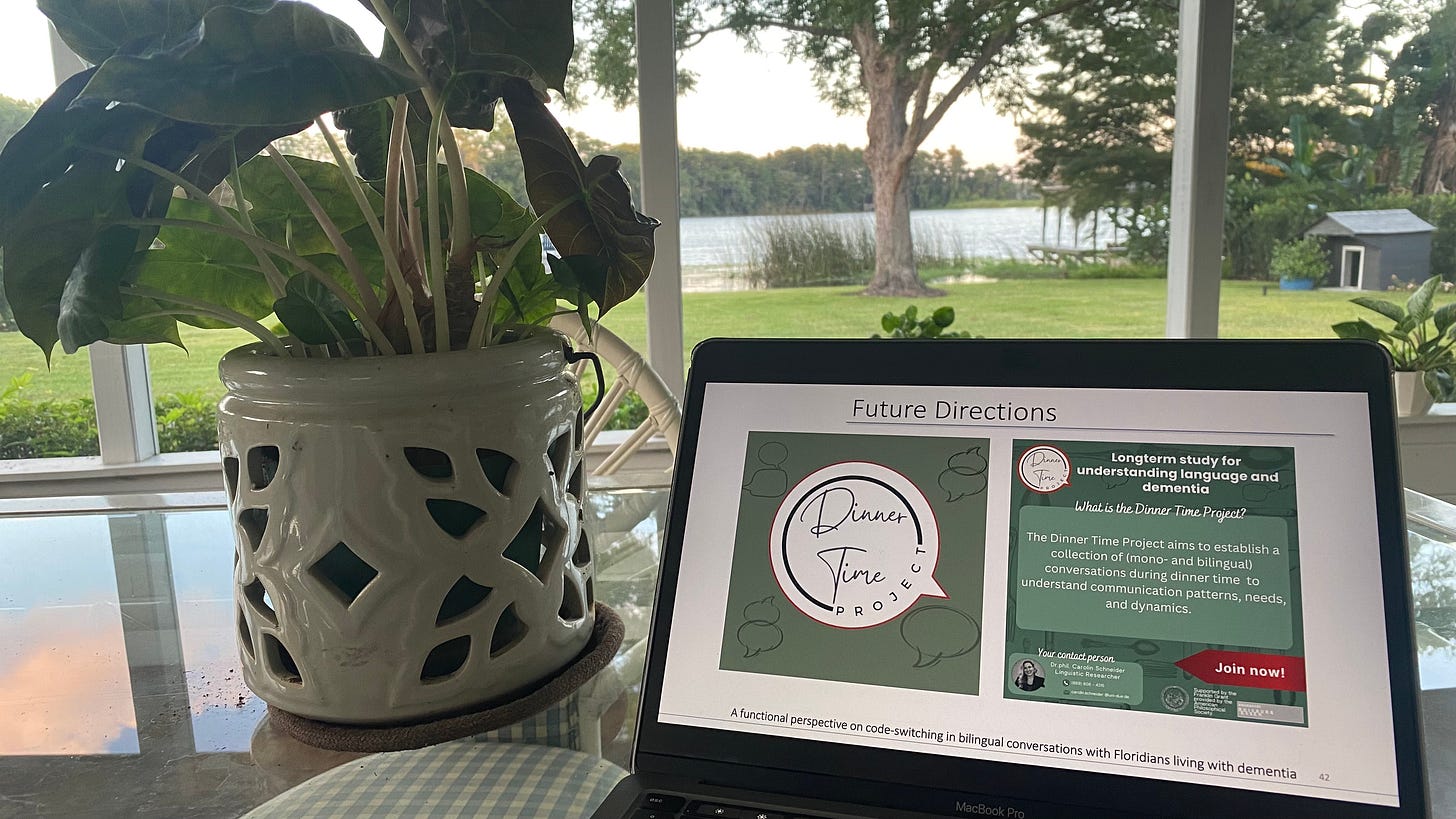How casual mealtime chats could impact dementia research
When someone we love receives a diagnosis of Alzheimer’s or some other expression of dementia, the entire family must become flexible, softening and adapting, again and again, as the disease reshapes our person.
The household faces infinite unknowns, questions that don’t yet have answers.
For instance, how will communication patterns and needs shift and how can we accommodate these changes?
Linguist Carolin Schnieder is hopeful that her new research study will “crack the communication” code so that we can better understand at least this one unknown.
Called the Dinner Time project, the investigation will explore how casual dinner conversations in these homes transform over time. To join, the Care Partner and her person would simply record a single, un-staged dinner conversation a month — allowing whatever conversations that occur (or don’t occur) to flow naturally.
Schneider, a University of Duisburg-Essen postdoctoral researcher, recently visited Central Florida, spending a month launching her project.
“This was the start, and the goal was to have as many people as possible to hear about it and consider [joining],” she said. “I met with so many different people and I was met with a lot of enthusiasm for the project.”
She met Central Floridians living with dementia-related brain changes, Care Partners, and other community stakeholders. She taught a class at the University of Central Florida, addressing students before they began day care facility volunteer work.
“We talked about how sensitivity to communication needs is important,” she said. “That was really great to talk to the students.”
She attended various meetings, support groups, and hung project posters in every Starbucks she could find.
“As a researcher, it’s a really humbling experience to talk to the people you’re investigating,” Schneider says. “These conversations with the potential participants are actually what matters, and it’s such an important part of the project.”
She adds, “To me that’s the core of this project, I’m really doing it so that something comes out of it that I can give back to the community, to have people partake in that giving back so that [they can see] their story matters. Their story does something.”
The data that Schneider collects will be anonymized, meaning that no names, dates, addresses, or any other identifying information, will be shared. The entire process is within the family’s control.
Schneider, who also serves on her university’s ethics committee, assures interested parties that just because they submit a conversation one month, does not mean they must continue to do so indefinitely.
“You do it once and then see if you want to do it a second time,” she says.
Schneider will transcribe every single discussion she receives.
“We can learn so much from the development over time,” she says. “That’s the ultimate goal of the project.”
She notes that the recorded data is useful, even if the person living with dementia does not speak much.
“There is no right or wrong,” she says.
Her aim is to have as many people as possible contribute their discussions. Potential Care Couples can speak English or other languages, and they can join whenever it is convenient.
“Representation matters,” she says. “Mainstream research is just targeted to really the average person that doesn’t exist. I want this to be as inclusive as possible.”
Interested in learning more? Consider contacting Scheider directly and scheduling an introductory conversation. You can also read her book, An Ethno-Social Approach to Code Choice in Bilinguals Living with Alzheimer's, now available in the Little Free Library.





